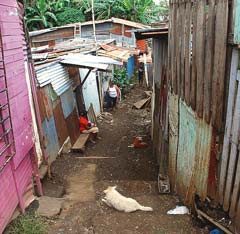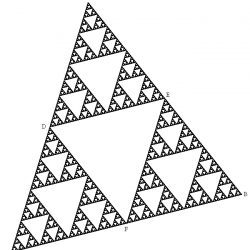Administrative act with the character of a norm that is dictated by the Executive Power
 Decree is called a decision that emanates from a competent authority in that matter that is of its concern and that will be made public in the prescribed forms.
Decree is called a decision that emanates from a competent authority in that matter that is of its concern and that will be made public in the prescribed forms.
Also called decree law, it is a type of Administrative act, generally from the Executive Power, which has a normative regulatory content for which its rank is hierarchically lower than the laws.
The decree is a general rule that comes from a non-legislative executive authority. As we know, the Legislative Power is the body that by design of the National Constitution is in charge of making laws. However, in some special situations the Executive Power is attributed the power to legislate through decrees. Only causes that demonstrate the need and urgency of a matter empower the Executive Power in this regard, this issue being constitutionally endorsed.
Implemented in cases of need and urgency
The enactment of laws is an inherent procedure of the Legislative Power and will always demand the approval of the bill in both chambers that compose it, that of Deputies and that of Senators, low and high respectively. Then it is the Executive Power that has the ability to enact or veto it. The process is not immediate, as we saw, it requires treatment in sessions in both chambers where it will be discussed, and even after its debate and approval it has to be reviewed by a special chamber. This context generates that before an emergency the Executive Power must resort to the decree to carry out a norm, but of course, it runs with the disadvantage of being a unilateral decision taken by the head of the executive and that has not been duly discussed by the representatives of the people. in Congress.
On the other hand, we must say that in many countries the recourse of the decree is used in a recurring way and that borders on excess, that is, many presidents make use of this tool even without convincingly proving the urgency of those issues that they establish by decree.
Obviously it is a double-edged sword since by passing over the power of the Legislative Power, the Executive, could incur some type of abuse of power. That is why it is so important that the decrees are reviewed by the Legislative Power.
During the military dictatorships that prohibited the action of the Legislative Power, decrees have been used the most to legislate on certain issues.
The use of decrees in Argentina
Meanwhile, there are some variations in the aforementioned hierarchical sense depending on the country in question. For example, in the Argentina In case it is required by any emergency situation, it will be the Executive Power who through decrees will regulate laws. According to the corresponding jurisdiction, it will be the Executive Power, the governor of a province or the Head of Government of the autonomous city on whom the promulgation of the decrees will fall.
Likewise, in the event that the Legislative Power is in recess or without activity due to some exceptional circumstance, the Executive, through the so-called Necessity and Urgency Decree , may take over legislative prerogatives, which must later be ratified by the Legislative Power.
The DNU, as they are popularly known in Argentina, enjoy the validity and entity of law despite the fact that it is the Executive Power that promulgates them. A DNU must be sanctioned with the consent of the ministers, that is, both the chief of staff and the ministers must participate in its creation. After the opinion, the chief of staff must appear before the permanent Bicameral Commission of Congress to await the resolution of each of the chambers.
If both reject it, the decree permanently loses its validity.
Meanwhile, for those regular administrative acts in which a decree is not specifically needed, it will be regulated through resolutions, generally issued by the ministries or by some state institution.
On the other hand, it is called royal decree to the decree approved by the council of ministers and subsequently sanctioned by the king, which turns out to be in some way the analogous form of Decree Law in parliamentary monarchies.









